Suggestions for excursions around Pompeii
Pompeii is close to places of great historical, artistic and environmental interest. Why not extend your stay at the hotel Villa dei Misteri by a few nights to visit some of them?
Here are some ideas and some information on times and distances to plan your itinerary:
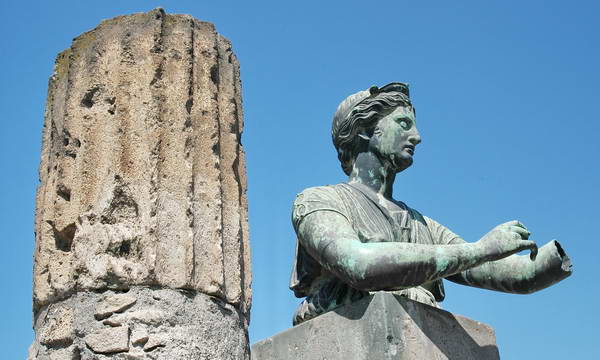
The archaeological park of Pompeii
The only place in the world where it is possible to visit a Roman city like it was before the eruption of Vesuvius stopped time in 79 AD.
The main entrance to the archaeological park, called "Porta Marina" is just a short walk from the hotel.
You can choose to visit the site on your own, but we recommend using one of the authorized guides you will meet near the ticket office.
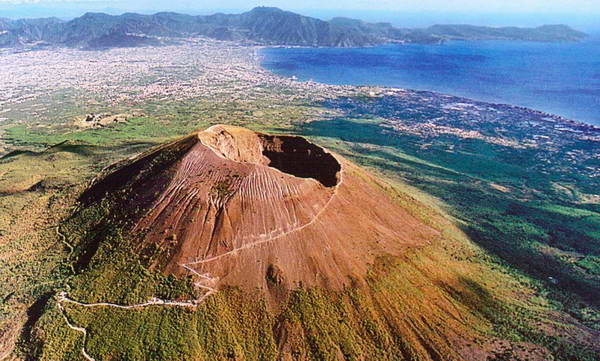
Vesuvius
The last eruption of Vesuvius dates back to 18 March 1944 towards the end of World War II. It was a frightening eruption but with a much smaller power than that on 24th August 79 AD buried the ancient city of Pompeii under a 4-meter layer of ash and lapilli. Since then Vesuvius has been in a state of quiescence and can also be visited with the special shuttles that are located near the hotel.
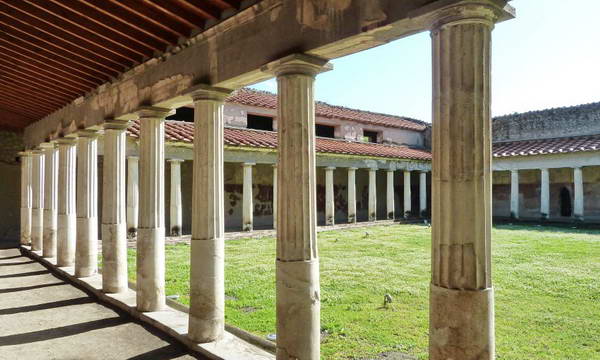
The villa of Poppea in Oplontis
It is a Roman villa of imposing size, unthinkable for a common citizen however wealthy. It is believed that it belonged to the family of Nero's wife.
The spectacular layout of the villa and the magnificence of the frescoes make it a tourist destination not to be missed.
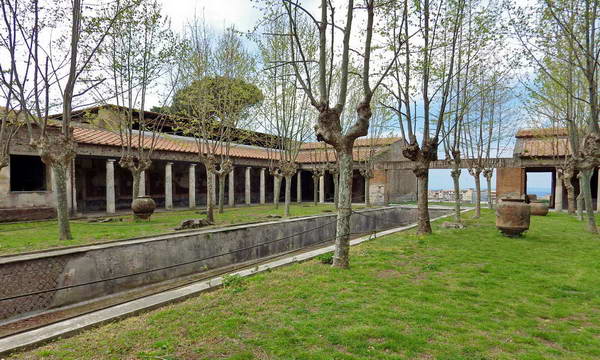
The villas of Stabia
There are 2 villas of ancient Roman patricians called “Villa San Marco and Villa di Arianna” that rise on a small hill, once on the sea shores. The villas are beautiful and well preserved, and being little known, you can visit them enjoying the tranquility that surrounds them. They can be reached by the Circumvesuviana (towards Sorrento) and from the “via Nocera” station with a short walk.
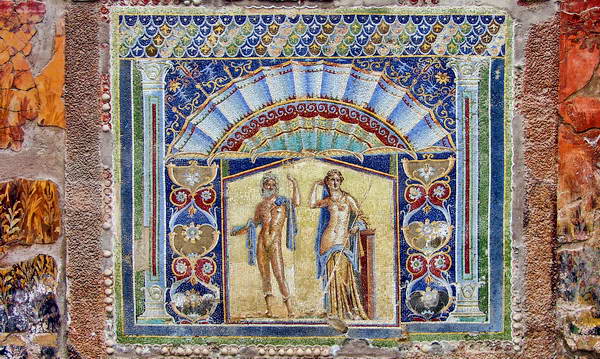
The excavations of Herculaneum
Unlike Pompeii which was buried by pumice and ash, the city of Herculaneum was hit by a "pyroclastic flow" preserving details that were not preserved in Pompeii, such as wooden structures and furnishings.
We suggest completing the excursion with a visit to the Virtual Archaeological Museum (MAV) near the Excavations.
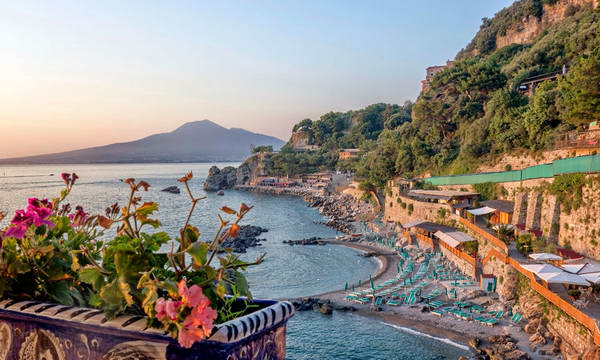
Scrajo beach and spa
The closest beaches to the hotel are in Vico Equense, in the Sorrento peninsula. Among these we recommend the beach of Scrajo, (from the Latin scrapeus: "steep and steep place").
Although not very large, the beach is well equipped and associated with a sulphurous spa, suitable for skin care.
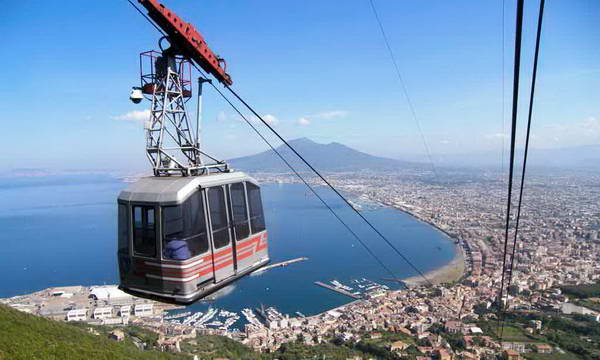
Monte Faito
Seeing Mount Vesuvius and the Pompeii valley from the top of Mount Faito on a beautiful sunny day is a unique sensation.
You can do it easily by taking a Circumvesuviana train and getting off at Castellammare di Stabia.
From there, from May to September, an incredibly panoramic cable car will take you to the altitude of 1000 meters in just a few minutes, and from there paths begin for pleasant walks.
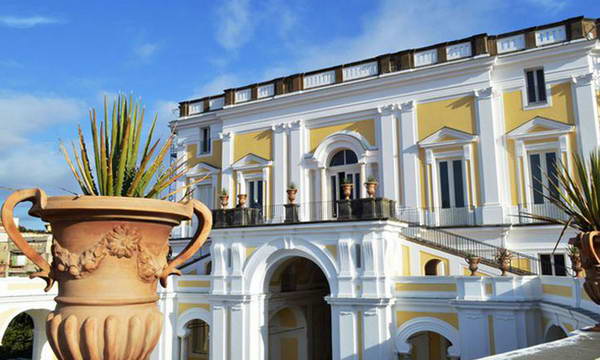
Villa Campolieto and the Golden Mile
It is an eighteenth-century villa of Herculaneum built along the royal road to Calabria, in the tract known as "Golden Mile" due to the presence of numerous noble residences of the Bourbon era.
The villa, completed by Vanvitelli, has a fine architecture and richly decorated interiors.
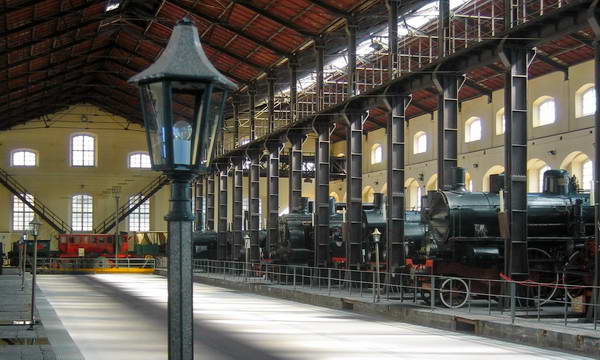
The “Officine Borboniche” of Pietrarsa
Few people know that the first Italian railway was built by Ferdinand II of Bourbon to connect the royal residences of Naples and Portici 8 km away.
Now the historic workshops where the trains were once built and repaired, host a very interesting railway museum with steam locomotives, royal carriages and many other curiosities.
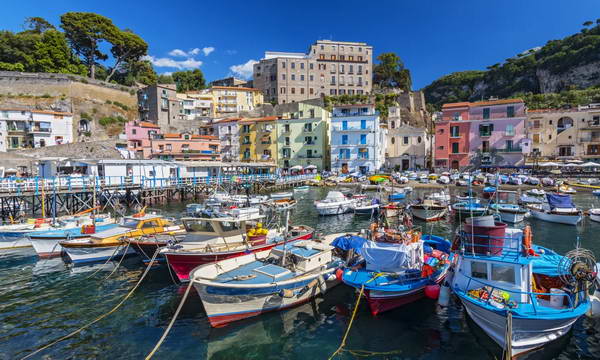
Sorrento
Renowned coastal tourist resort, south of the Gulf of Naples, known worldwide for literature (Torquato Tasso), music (the tenor Enrico Caruso), the characteristic craftsmanship of inlaid wood work and the liqueur “limoncello”.
At the centre of the city you will find the Sedil Dominova, the Cathedral, the Correale museum and the alleys of the ancient village where it is pleasant to walk or stay for a dinner in one of the many restaurants.
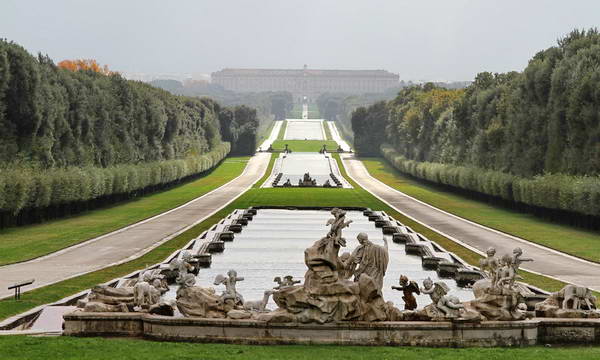
The royal palace of Caserta
It is the largest royal residence in the world by volume, with a magnificent 3 km long park attached, famous for its splendid Italian and English style gardens.
The building, commissioned by Charles III of Bourbon, began in the mid-1700s, designed by the architect Luigi Vanvitelli.
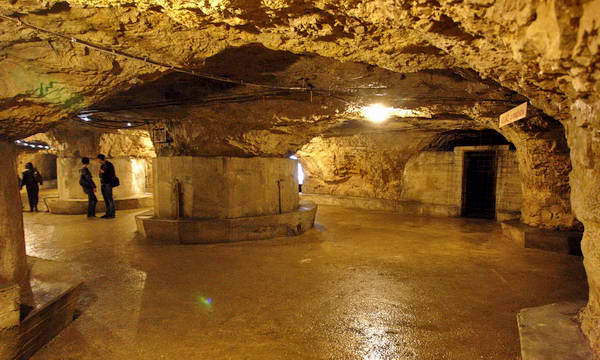
Underground Naples
Under the noble palaces of the historic centre of Naples there is a network of cavities connected to each other where the remains of the ancient Greek city intertwine with the Bourbon tunnel excavated by the king of Naples to escape to the sea in case of siege.
The main entrances of this suggestive and unusual path are in Piazza Plebiscito (near the historic Bar Gambrinus) and in Piazza San Gaetano.
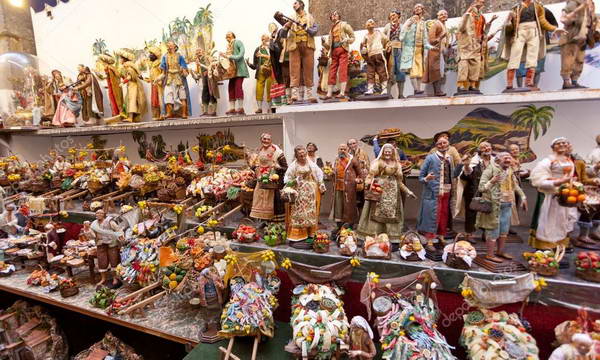
The nativity scenes of San Gregorio Armeno
The walk through the Christmas markets in Via San Gregorio Armeno in Naples is a must for the Neapolitan nativity lovers.
We advise avoiding the days of Advent, when the road is very crowded, also because the artisans' shops can be visited all year round.

The National Archaeological Museum
In the 18th century when the ruins of Pompeii and Herculaneum came to light, the most beautiful frescoes and mosaics of the ancient Roman villas were brought to Naples to enrich the heritage of the Bourbon royal family.
Today these finds are preserved in the Archaeological Museum of Naples together with other precious works of art such as the sculptures of the Farnese collection and the finds from the Egyptian collection.
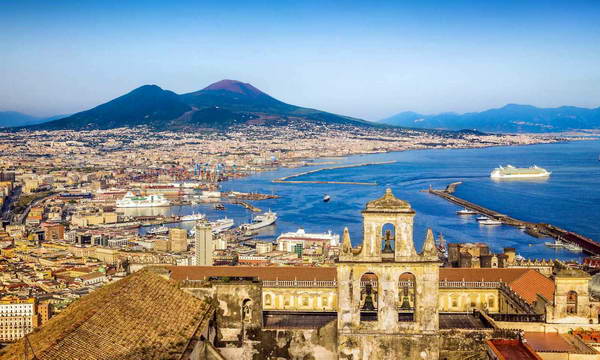
Naples
There are many things to see in Naples and there are also many museums of international importance. Let's just give you some ideas to choose from to organize your own itinerary. National Archaeological Museum, Pinacoteca di Capodimonte, Castel Sant'Elmo, Maschio Angioino, Castel dell'Ovo, Sansevero Chapel with the Veiled Christ, Piazza del Plebiscito, Royal Palace, San Carlo Theater and Umberto I Gallery, Vico SpaccaNapoli, via Toledo, Park of Virgilian, Monastery of Santa Chiara and the Cathedral with the treasure of San Gennaro.
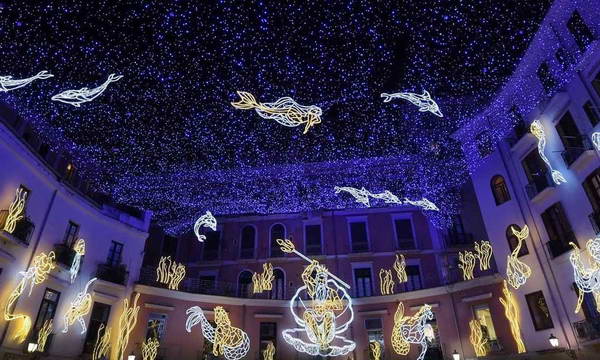
Artist's lights in Salerno
During the Christmas period, the waterfront of the city of Salerno is filled with extraordinary luminous works created by local artists. The event, which began in 2006, is widening more and more to the point that today it has become an event that cannot be missed during the festive period.
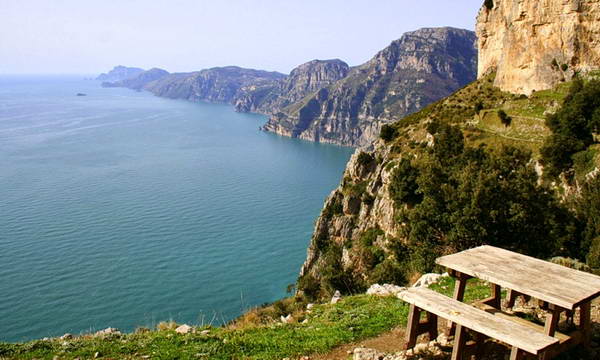
The Path of the Gods
It is a trekking route suspended between the sky and the sea that descends from Agerola to Nocelle, near Positano, in the middle of the Amalfi coast. From Agerola near Punta San Lazzaro the journey begins which, in about 3 hours, leads to Nocelle. The route, although not demanding, is not suitable for very young children.
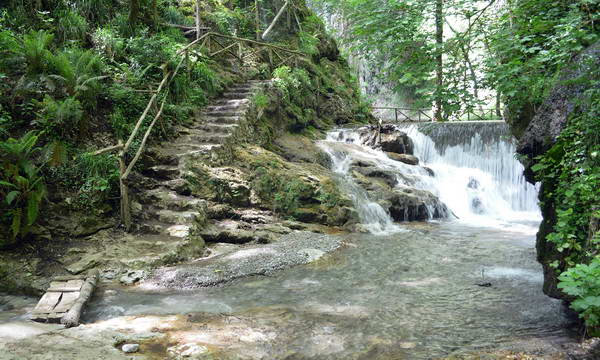
The Valle delle Ferriere
Few people know that it is possible to reach Amalfi by walking down a path that winds through streams and waterfalls.
The route enters a gorge where a rare prehistoric fern survives and ends in Amalfi, passing through ancient ironworks and medieval mills destined for the production of paper. The starting point is the village of Pontone, near Ravello.

Capri
The island of Capri is one of the most beautiful islands in the world, and is also the best known Italian island abroad. Famous for the Villa Jovis of Emperor Tiberius, for the Blue Grotto, for the famous square and for the many paths that lead to enchanting beaches. Ferries leave from the port of Sorrento, reachable by the Circumvesuviana.
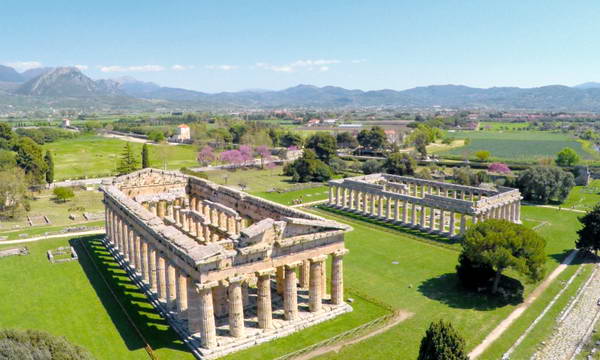
Paestum
It is a city of the ancient Magna Graecia with a little preserved settlement enclosed by imposing walls. It is famous for the three splendid temples dedicated to Hera, Poseidon and Athena and for the very interesting finds kept in the museum on the edge of the archaeological site. Not to be missed!
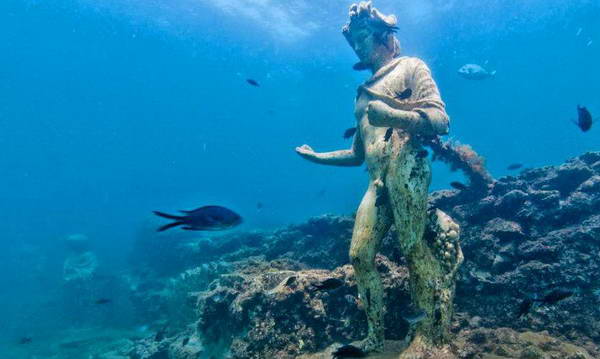
The submerged archaeological park of Baia
The Campi Flegrei area is subject to "bradyseism", that is to say to phenomena of raising and lowering the ground. As a result, the ancient villas of the Roman patricians, who were staying in the spa town of Baia, are now below sea level. If you are not a diving expert, you can visit submerged Bay with a transparent bottom boat that leaves from the Bacoli pier.
Discover fantastic itineraries from the Hotel Villa dei Misteri